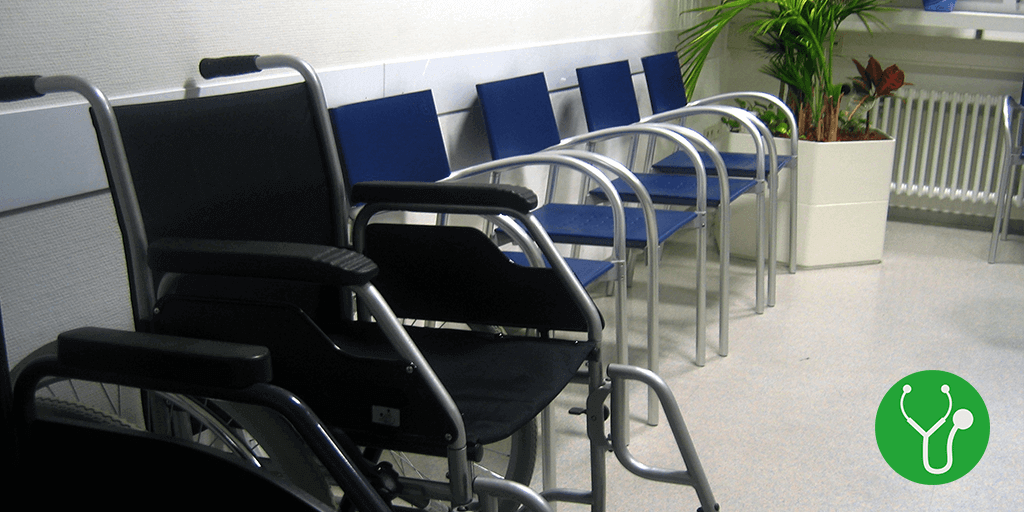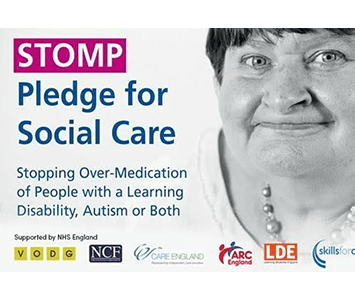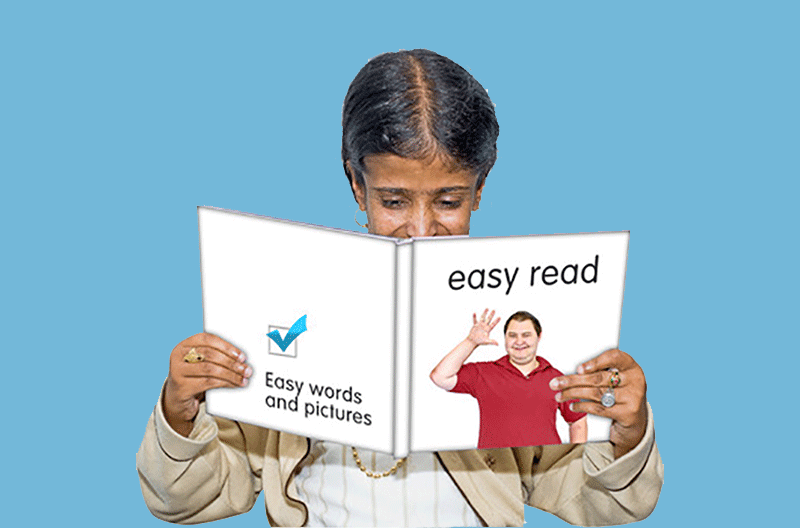More details about the research report
Our research has highlighted that many healthcare professionals are already working working hard to deliver quality care to their patients with learning disabilities and autism, but they are not getting the training and support they need.
53% of respondents with a learning disability or autism rated the service from their GP positively compared to 85% from the general population.
Good health outcomes for people with learning disabilities and autism rely on collaborative working between all those who support people with their health, including GPs, nurses, practice staff, families, support workers and patients themselves.
Research has shown that people with learning disabilities are five times more likely to end up in hospital for an issue that could have been treated by primary healthcare practitioners (EHRC).
Without sufficient training, many practices are finding it difficult to support people with learning disabilities and autism to achieve good health and consequently too many people experience a reduced quality of life.
Here are some of our key findings from #MyGPandMe: Making Primary Care, Fair…
Communication and reasonable adjustments
Only half of autistic people and people with learning disabilities who we asked feel involved in decisions about their healthcare. Compared to other people, people with learning disabilities and autism are:
- 30% less likely to feel listened to by their GP.
- 28% less likely to feel treated with care and concern.
Over half of the GPs surveyed agree that communication issues between patients, support workers and GPs are an obstacle to meeting the needs of people with learning disabilities and autism.
Reasonable adjustments are small changes that are made for someone with a disability so they can access a service that would otherwise be inaccessible.
The Equality Act 2010 created a legal obligation to make reasonable adjustments, but they are not put in place as often as they should be. 60% of respondents to our primary healthcare survey said their GP did not make reasonable adjustments for them.
Not only are reasonable adjustments a right, they are crucial to ensuring someone gets the healthcare they need.

Being in unfamiliar surroundings with unfamiliar people caused Paul great anxiety, but it's important he goes to his local surgery. To help prepare, staff booked a taxi for Paul to and from the surgery every Friday. To put him at ease, Paul’s support staff prepare a flask of tea, a couple of biscuits and his favourite mug. At first, the staff at the surgery arranged things so Paul could sit down and have his tea and biscuits straight away. After six weeks they began to guide him into the consultation room.
We can tackle this by giving GPs more support to make reasonable adjustments
- Almost half of GP respondents identified a lack of clarity on when to use reasonable adjustments and 44% said they didn’t know which reasonable adjustments to make.
- Encouragingly, GPs themselves are calling for further training to tackle the issues they’ve identified and 47% of GPs would like additional training on reasonable adjustments to ensure people with learning disabilities and autism receive care and treatment that meets their individual needs.
- But, 25% said they didn’t have enough time to make reasonable adjustments so pressure on the NHS and healthcare system needs to be addressed too.
GPs’ responses
We asked GPs about working with people who have learning disabilities and autism to gauge their training and confidence.
- Two thirds (64%) of GPs told us that they had received less than a day’s training on how to meet the needs of patients with learning disabilities and autism and 7% of GPs have received no specific training.
- 60% of GPs say that additional training is necessary, and that more could be done to ensure patients with learning disabilities
and autism are getting the best possible care from the primary healthcare system. - Most importantly, 98% of GPs told us that they would benefit from a short training session, led by people with learning disabilities and autism, on how to meet the individual needs of patients with these disabilities to improve their health outcomes.
Annual health checks
Free annual health checks are available to anyone with a learning disability that has registered on their general practice’s learning disability register.
The annual health check can help people to maintain their health and develop a relationship with their general practice in case they fall ill or need treatment.
In 2014-15 just 46% of people on the learning disability register had an annual health check, and many more not on the register will not have had one.
Our research shows that the quality of health checks can vary, often depending on the adjustments that practices make and
the relationship that exists between the person and professionals in their general practice.
Only half (51%) of people with learning disabilities and autism felt they were involved in decisions about their healthcare. GPs are mirroring these concerns.
Psychotropic medication
Over medication as a response to behaviours of distress is wrong and reduces quality of life. It can often be the result of environmental factors, which can be changed and adjusted. Better support and better environments can lead to a reduction in behaviours of distress, with far better outcomes for individuals than chemical intervention.
Overmedication can lead to other health issues, such as increased risk of constipation, weight gain and even organ failure. Beyond this, there is the fundamental point that no one should be taking drugs they do not need, when other interventions can improve their quality of life.

Katy disliked taking her medication and often refused it. Family members explained to staff that they only called her in the afternoon because she was “too drugged up" to talk earlier in the day. Katy displayed many behaviours of distress – she would spend hours screaming and assault staff. The team took requested a reduction in medication and within a week she had changed. She became more alert and didn’t spend the day in and out of sleep. There were no behaviours of distress and she started speaking and joking.
Over 80% of GPs identified over-prescription of medication as a problem confronting people with learning disabilities and autism. Almost half (48%) of GPs would like additional training on prescribing and assessing psychotropic medications.
Anyone on psychotropic medication should have a multidisciplinary review of their prescription every six months, but many people still don’t receive regular reviews. This a clear area for action and one that GPs must be aware of.
Cancer screenings
Developing the knowledge and understanding to check your own body can be more difficult for people with learning disabilities and autism. Some will have support workers to help spot any changes or abnormalities that need attention, but overall, people with learning disabilities and autism are at a high risk of late diagnosis.
This makes screening programmes particularly important for people with learning disabilities and autism, as an opportunity to spot potential cancers at regular intervals.
Nonetheless, screenings for breast, cervical and testicular cancer can be challenging for people who experience anxiety when they attend the doctors.
Evidence shows that people with learning disabilities and autism are routinely missing out on cancer screenings:
- 76% of eligible women in the general population had their breast screening in the preceding 3 years.
- Only 47% of eligible women with autism and learning disabilities had a breast screening in the preceding 2 years.
- 73% of eligible women in the general population had their recent cervical screening.
- Only 19% of women with learning disabilities and autism had their recent cervical screening.
The cervical screening statistics are particularly concerning and are, in part, due to false assumptions that many women with learning disabilities are not sexually active and so don’t need screenings.
Nearly half of GPs we surveyed said they wanted additional training on how to make reasonable adjustments to support improved rates of cancer screenings.
Constipation
It is estimated that half of people with a learning disability are at risk of suffering from long-term constipation.
Poor diet, limited physical activity, over medication and poor bowel movement monitoring are all risk factors for constipation, to which people with learning disabilities are more susceptible.
Long-term constipation is symptomatic of poor health and causes ongoing reductions in quality of life, through discomfort, pain and the need to take medication.
It is vital that people are supported to make healthy lifestyle choices that support bowel health. This helps to improve quality of life and reduce the risk that someone might be hospitalised for constipation.

When Dimensions started supporting Tom he suffered from severe constipation and was on a cocktail of medication for behaviours of distress. His new support team started to make sure that meals were cooked fresh with lots of vegetables. His medication was given on time, so Tom was up before 8am and offered a healthy breakfast. The results were so good that his bowel movements were more regular, his aggression virtually gone and he was taken off his medication. His psychologist stated that he had never seen Tom looking so good in the 24 years he'd known him.
Managing the risk of constipation is a clear area where those supporting people with learning disabilities must work with healthcare professionals effectively.
Using tools such as Health Action Plans can help to co-ordinate someone’s healthcare across different practitioners and make sure that everyone has understood the steps that are needed to maintain or improve someone’s health.
46% of respondents to our primary healthcare survey did not have a health action plan
When everyone works together, long-term problems such as constipation can be very well managed, meaning people can lead healthier, happier lives












